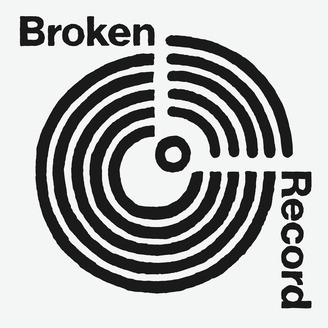Podcast Review: Broken Record with Malcolm Gladwell and Rick Rubin
As part of our ongoing Music Journalism Course, our music team was asked to choose, listen to and write a reaction to an episode of a music podcast.
If I’m being honest, I’ve never been a fan of podcasts. I would much rather watch a debate to see more human interaction, emotions, and visuals, which made this assignment more challenging. However, the assignment must be completed so through Spotify, I discovered Broken Record with Malcolm Gladwell and Rick Rubin. I was in my bedroom listening to this podcast on my laptop but streaming it through my Google Home I named “Shay’s Place.”
The podcast I chose to listen to was their Season One finale: Tom Petty and The Creation of Wildflowers
One of my favorite classic rock groups of all time is Tom Petty and The Heartbreakers, who I was able to see perform before Petty passed October 2, 2017. What drew my attention to this podcast is the conversation revolving around Rick Rubin working with Petty on his 1994 album Wildflowers for over two years.
Overall, I did enjoy the podcast because of Rick Rubin’s stories of Petty, as in Petty doing most of the recordings from scratch. He would start off just him and an acoustic guitar, then creating a homemade demo with a drum machine and added parts he wanted. “It usually sounded like a less professional version that we would bring to the band,” Rubin said. As one of the most influential producers the past 25 years, I expected complete professionalism and in-depth details about the creative process put into Wildflowers.
Gladwell did an excellent job of asking the right questions about Wildflowers, focusing on specific songs like “You Don’t Know How It Feels.” Rubin then followed by describing the beat of the song, the “boom boom cha” rhythm. Again, because I love fun facts, that beat originated from the Steve Miller Band song, “The Joker,” a great song released 21 years prior. Little tidbits like that are important for dissecting songs and breaking them down for the listener.
The whole podcast was just rattling off facts about the album, which is exactly what I was looking for from Rubin. For example, Rubin emphasized how many songs were written over the two-year period. The album has 15 songs total on it, but Rubin said Petty wrote between 26-28 songs total, leaving the other 11-13 songs unreleased and forgotten about.
The show took full advantage of their audio possibilities over their 36:16 segment; the length of the podcast was perfect. Gladwell and Rubin made their points without dragging the segment on and on. But, throughout, Gladwell had Petty songs cued up pertaining to the story Rubin was sharing, helping Rubin relive those moments with Petty. And of course, the podcast had commercials for advertisement, which I guess is technically fully using audio capabilities.
Because I am not an avid podcast listener, it is hard for me to say if they copied other podcasts or had any flaws. I was impressed with how Gladwell and Rubin very rarely strayed from their main objective, unless it was for background purposed leading back to Wildflowers.Both of them had an objective and nailed it with as many details as possible.
This podcast will be the first one I’ll subscribe to because of the professionalism. A lot of podcasts I’ve heard from friends are two people bickering over a specific topic, making outlandish statements with no facts to support their hypothesis. But with Rubin, a successful producer, he provides insight on topics that a normal fan could not include.
As a journalist, I love listening to true stories from eye witness accounts, which is exactly what the podcast endorses. And at the end of the podcast, I have a better understanding of the musical genius named Tom Petty.




